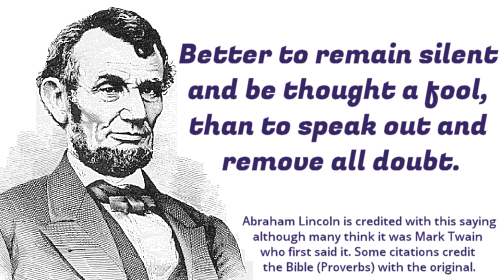Just in the past week alone, I’ve been asked three times why someone would hire a private patient advocate when there are so many other forms of help available.
What other forms would those be? A variety:
- hospital patients can call on the hospital’s patient advocate for help
- cancer patients find navigators to help them through treatment
- insurance customers can call their customer service rep, or even an insurance company patient advocate
- a newly diagnosed patient can often find that large disease advocacy organizations, like the Leukemia and Lymphoma Society or the American Diabetes Association, will provide an advocate to help them sort out questions they may have
Yes – those are all resources patients have when they need assistance. And to some extent, patients may find the answers they seek with any of them.
But there is something each one is lacking, and that one thing can mean the difference between life and death, the difference between quality of life or lack thereof, or the difference between solvency and bankruptcy.
It’s the A word – Allegiance. Unless a patient’s advocate owes total allegiance to the patient, then the patient cannot be sure he or she is getting care or advice in his or her best interests.
Allegiance is based on who compensates the advocate and whether that creates a conflict of interest. An advocate cannot afford to challenge the source of his or her paycheck. Therefore, any advocate’s allegiance will be to that payday source first, and if it isn’t the patient, then the patient will be second fiddle (at best.)
If the paycheck comes from the patient, or the patient’s benefactor*, then that’s where the allegiance will lie, and that’s the only way a patient can know that there is no conflict of interest; that he or she is being helped by someone focused on his or her best interests – FIRST.
Which means the only way a patient can count on total allegiance is through a private, independent patient advocate.
The forms of advocacy listed above which come “free” to the patient cannot, by definition, be primarily focused on the patient’s best outcomes, as follows:
- The hospital patient advocate works for the Risk Management department. It’s his or her job to keep the hospital out of hot water. If that is helpful to the patient, too, then good. But the advocate’s allegiance is focused on the hospital’s best outcomes first.
- Cancer navigators working for hospitals are similar to the hospital’s patient advocate as they shepherd patients through treatment. But a newly diagnosed patient isn’t ready for that yet. He needs to make a number of decisions before getting to the point where treatment is undertaken. The hospital’s cancer navigator isn’t going to suggest a second opinion, nor is he or she going to provide an in-depth review of other treatment options.
- An insurance company patient advocate? In all seriousness, that’s simply an oxymoron.
- Large advocacy organizations, usually non-profits, are the closest alternative to a private advocate because as volunteers, they aren’t concerned about their own paychecks. But those organizations are underwritten by for-profit individuals and organizations with interest in what they do. A large cancer organization that is underwritten by a pharmaceutical company will have a bias, whether it’s actual or perceived. Conflicts of interest are sometimes readily identifiable, and sometimes more covert, but they exist none-the-less, and that can mean their advocacy puts the patient second. The training of their volunteers will be subsidized by a pharmaceutical or other for-profit company and will be inherently biased.
As a private, independent advocate, you may be asked this same question – about why someone should hire you instead of relying on the help of one of the advocates described above. If someone asks you, then your answer can be that simple. It’s…
The Allegiance Factor
*A patient’s benefactor: Total allegiance doesn’t have to come from a direct patient-pocket-to-advocate paycheck. There are others who are focused primarily on the patient’s outcomes, too. Family members, certainly, are benefactors. Employers may be benefactors too, since their best interest is in good outcomes for the patient. Labor unions and religious groups are also stepping in to provide private advocates to their members because it helps their members, and happy members will keep paying dues or making contributions. True benefactors create no conflicts of interest.
? ? ? ? ? ? LEARN MORE ? ? ? ? ? ?
FOR PATIENTS | FOR ADVOCATES | FOR POTENTIAL ADVOCATES
? ? ? ? ? ? ? ? ? ? ? ?





This is a great reminder of why we do what we do…allegiance to the patient! Very wise, concise counsel on how we address this issue,Trisha. I will be giving presentations in my community about the Affordable Care Act in the coming months and will speak passionately about the role of professional advocacy during these times of change. Joining APHA has been one of the wisest moves I have taken since becoming a patient advocate in 2011. Thanks for all you do to empower us all!
Once again, Trisha you are wisely articulating what private patient advocates are all about. The word “allegiance” is perfect to use in describing what sets us part and a word that is easily understood by all. I will use it this week at a resource fair I am participating in at a local independent living facility. Thank you!!
AMEN! As a very disgruntled patient, I’ve been saying this for the past year and a half that I’ve been dealing with hospital patient advocates. She/they are beholden to the person/entity that signs their paycheck and do not care one iota about the patient – they just want them to go away.
Sometimes it took months to get a reply. And it was only a reply – NEVER were any of my questions answered, never were any of the billing errors corrected.
This is very important, and true. The hospital ombudsman is employed by the hospital, and works for them! She/he will not confront the hospital on an issue on behalf of the patient.
From experieice, I know that a patient’s questions are not answered. (I sent a letter to the ombudsman asking why the doctor never told me my EMG tests were abnorman-with motor axon loss.) And the ombudsman referred me back to the doctor who did not give me an answer.